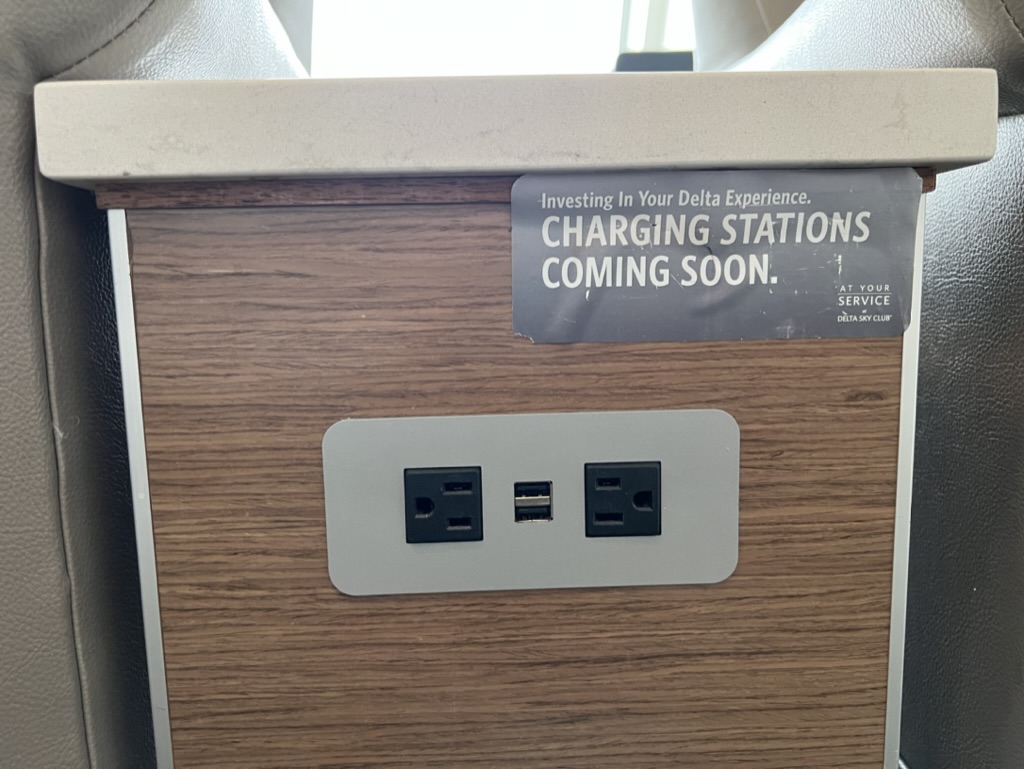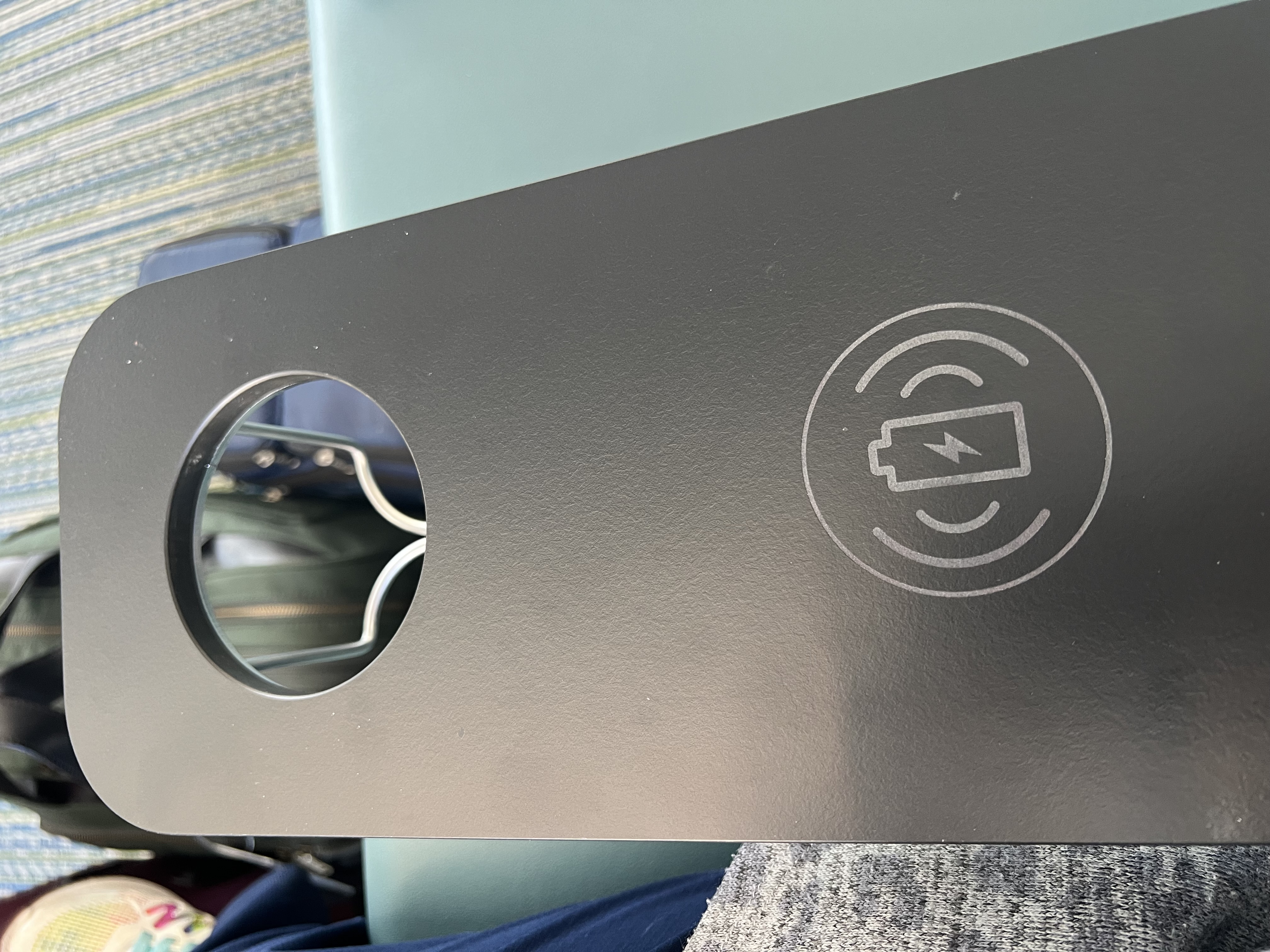Phones have become our boarding passes, wallets, cameras, maps, and social lifelines. Which means when your battery hits the red zone, rational thinking evaporates.
That’s when the glowing beacon of salvation appears: a public charging station. You don’t think. You just plug in.
When Convenience Turns Into Risk
But according to cybersecurity experts, that innocent act can put your entire phone at risk. Under the right conditions, someone can modify a USB charging port to steal data or install malware — a hacking method known as juice jacking. It sounds like something from a spy movie, but the FCC and FBI have published warnings, and security researchers have proven it’s technically possible.
And yes — this is why USB “condoms” are a real product you can buy on Amazon.
Of course, instead of ignoring it like a normal person, I did what I always do: I went down a YouTube rabbit hole. There, I came across a short video about public charging stations. (Fair warning: the language may be NSFW.)
https://www.youtube.com/shorts/kZ5rX16hRek
Why You Should Take This Warning Seriously
Why should you believe this video? It’s from Jason Thor Hall. Besides being an indie game designer and video streamer, his prior career was in internet security. More accurately, he worked as a “good hacker,” finding exploits in systems for the Department of Energy and later stopping gamers from discovering vulnerabilities in Blizzard’s online infrastructure.
So when someone like that says public charging stations can be hacked, I tend to listen.
And once that seed was planted, I wanted to know how real the threat actually is. Is this a legit concern — or just another overblown internet scare?
So… Is Juice Jacking Real?
Turns out, both things can be true at the same time.
In fact, “juice-jacking” has been documented as technically possible for over a decade. The idea is simple: if a USB port can charge your phone and transfer data, then in the wrong hands, it could be used to grab data or install malicious software. The FCC even devotes an entire page to warning travelers about it.
But here’s the twist…
They also acknowledge they aren’t aware of any confirmed cases of it actually happening in the wild.
Even knowing all of that, the moment your phone hits 8% battery, logic leaves the chat.
We don’t live in a theoretical world — we live in the real one, where the only open seat in the lounge is right next to a USB port calling your name.
Real Life: When Your Battery Is at 8% and Logic Disappears
Here’s a perfect example — this was in a Delta Sky Club:

USB ports are now ubiquitous: in airport seating, gate areas, hotel nightstands, and rental cars. They’re convenient, and they’re designed to lure you in when your battery is dying.
Airports are even starting to add wireless charging built directly into the furniture, like this setup:

Wireless charging solves the data-transfer issue entirely — power only, no data. Unfortunately, it’s not yet available everywhere.
So yes — the risk is low, maybe even theoretical, but as Vox puts it:
“Just because it doesn’t seem to have happened yet in the 12 years since it first came to the public’s attention doesn’t mean it never will… All a hacker would have to do is sit back and wait for victims.”
If you’d rather not take that chance, here are some easy ways to protect yourself.
How to Protect Yourself
- Avoid public USB ports. This is obvious, but when your battery is running low and you won’t be able to get back to a trusted charger soon, that’s not much help.
- Carry an external battery. If you have your own supply, you won’t have to plug your phone in to charge it.
- Use a wall outlet instead of a USB port. Wall power = electricity only. USB = power + data.
- Use your own cable. Hackers have also figured out how to steal your data through certain USB charging cables.
- Use a USB data blocker (“USB condom”). Yes, these exist. They make it technologically impossible to transfer data, and they’re small and easy to carry around.
Final Thought
Have I ever used a random USB port in an airport lounge? Absolutely.
Did it make me feel like I was plugging my phone directly into a hacker’s laptop? Also yes.
These days, I prefer my own charging brick or a wall outlet. I’m not living in fear of juice jacking, but if the FBI, FCC, and cybersecurity researchers agree that the risk — even if rare — exists, I’d rather not be the first confirmed case.
Besides, the real danger is still connecting to public Wi-Fi without a VPN… which I’ve also done more times than I care to admit.
Want to comment on this post? Great! Read this first to help ensure it gets approved.
Want to sponsor a post, write something for Your Mileage May Vary, or put ads on our site? Click here for more info.
Like this post? Please share it! We have plenty more just like it and would love it if you decided to hang around and sign up to get emailed notifications of when we post.
Whether you’ve read our articles before or this is the first time you’re stopping by, we’re really glad you’re here and hope you come back to visit again!
This post first appeared on Your Mileage May Vary
